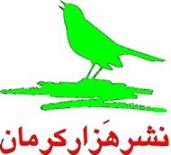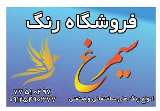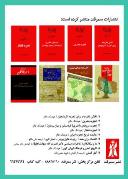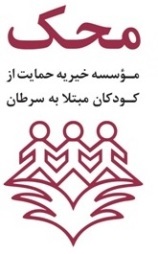ЩҶЪҜШ§ЩҮ ШұЩҲШІ
A worthy plan for safeguarding: IranвҖҷs Cultural Heritage
- ЩҶЪҜШ§ЩҮ ШұЩҲШІ
- ЩҶЩ…Ш§ЫҢШҙ Ш§ШІ ЪҶЩҮШ§ШұШҙЩҶШЁЩҮ, 08 Ш§ШұШҜЩҠШЁЩҮШҙШӘ 1389 05:48
- ШЁШ§ШІШҜЫҢШҜ: 29946
ШЁШұЪҜШұЩҒШӘЩҮ Ш§ШІ ЩҒШұШ§ЫҢШұШ§ЩҶ
В
In the last days of the previous year, IranвҖҷs Cultural and Tourism Heritage Organization launched a plan for the development of a databank on historical remains of Iran in the era of the Achaemenids. The plan embraces identification, repair of monuments and research.
Mohammad Mohebali, the Head of the Research Institute for the Context and Historical Buildings of the Cultural Heritage and Tourism Organization of Iran has pointed out in this regard that Tajikistan, Pakistan, Afghanistan, Kyrgyzstan, Uzbekistan, Turkey, Iraq, Kuwait Egypt, Syria, and Jordan all have historical remains that reflect the ancient Persia. Iran intends to sign contracts with these countries for identification of and research on these Persian remains.
According to Mr Mohebali, the Cultural Minster of Tajikistan paid a visit to Tehran recently during which IranвҖҷs identification and research on its ancient remain in Tajikistan was agreed upon. Iran gives first priority to its eastern neighbors for such activities. Although the necessary funds have not yet been secured, initial studies have begun and once the funds are available research in these neighboring countries will seriously begin.
Mr Mohebali further points out that Iran gives first priority to Afghanistan and considering the damages inflicted on historical buildings in that country, already a number of Iranian experts who are specialists in repair of ancient buildings have been sent to that country by international organizations.
Aliasghar Sherdoost who was appointed, some time ago, by the Cultural Heritage and Tourism Organization (CHTO) as the expert on these activities outside Iran has pointed out that since last year the areas of cultural heritage and civilization of Iran has been seriously taken into consideration by CHTO and certain actions have been taken such as the preparation of an accurate map of Iranian Empire during the Achaemenid Era. вҖңSome coordinated actions will take place with the aim of preparing documents and gathering information required for understanding our cultural heritage in these neighboring countries, he added. According to him the Plan pays great attention to documentation, and studies on literature (prose and poetry) literary criticism, folklore culture, anthropology, manuscripts, stone tablets, and studies of customs and way of life.
According to Sherdoost, securing the necessary for beginning the project of identifying Iranian historical heritage in the neighboring countries is one of the major steps towards the realization of the plan. The further believes that, it is particularly necessary because some parts of the plan such as collecting information abroad, cooperating with experts from other countries etc.
It is worthy to note that this project has been in the making for a long time and has been known as the 2200-year Achaemenid Empire Map Project. Once each stage of documentation and research in culture and civilization of Iran is completed the results are published as books and put at the disposal of all interested.
The Achaemenid Empire was the longest lasting kingdom that ruled in Iran. At the peak of this Empire Iran comprised the present day land, plus parts of Tajikistan, Pakistan, Afghanistan, Kyrgyzstan, Turkmenistan, Uzbekistan, Turkey, Iraq, Kuwait, Egypt, Syria, and Jordan.
To survey and research Iranian culture and archeology and identify monuments and repair them and etc with respect to the Achaemenid Era is one of the largest cultural-historical understandings that so far has been taken regarding IranвҖҷs outstanding heritage. But to make a more effective job of such a project we must first acquire a better understanding of the Greater Iranian Plateau. But this does not in any way mean that the project presently underway should be stopped pending the implementation of the greater project.
The Iranian Plateau, is a well-known geographic territory whose boundaries extend from the Caucasian Mountains to Amodarya and Sirdarya Rivers in Asia Minor (the North), from Khavaran to Pamir Plateau and the Sind River (the East), and from the Indian Ocean and the Persian Gulf (the South) and the Euphrates and Tigris Rivers (the West). This large territory that covers four million square kilometers formed the Iranian territories for thousands of years and at times even Iran covered a large area and for many centuries a number of smaller states lived on this land, in peace or at war.
With the beginning of the 19th century, Iran gradually became of increasing interest to the European, particularly British and Russian colonial powers. During the period 1813-1881 the two forces forced upon Iran agreements that were of unilateral interest, all to the benefit of the colonials, such agreements as Golestan, Torkamanchai, Paris, Akhal, the agreement on the segregation of Iranian Baluchistan, now a part of Pakistan etc. As a result, Iran as a great nation disintegrated. Before then parts of western Iran had been trodden and taken over by the Ottoman Empire.
Today the territories that once made up a vast empire are independent nations or parts of other countries but they can all claim to be the children of the same ancestors especially those share the language, customs, culture, civilizationвҖҰ of the parent country.
They comprise:
вҖў In Caucasia:
Republic of Azerbaijan,
Republic of Armenia,
Republic of Georgia
вҖў In Asia Minor:
Republic of Turkmenistan,
Republic of Uzbekistan,
Republic of Tajikistan, parts of Kazakhstan and Kyrgyzstan
вҖў Afghanistan (in its totality)
вҖў Present day Iran
вҖў Parts of Mokran and Baluchistan, Pakistan
вҖў Kurds to the West of Iran separated from the mother land by the Ottoman
вҖў Bahrain
Events: this publication does not share the writers view the people of these lands (except todayвҖҷs Iran) may considers their ancestors to be whatever they choose, and do not necessarily have to consider themselves to be of Iran origin.







